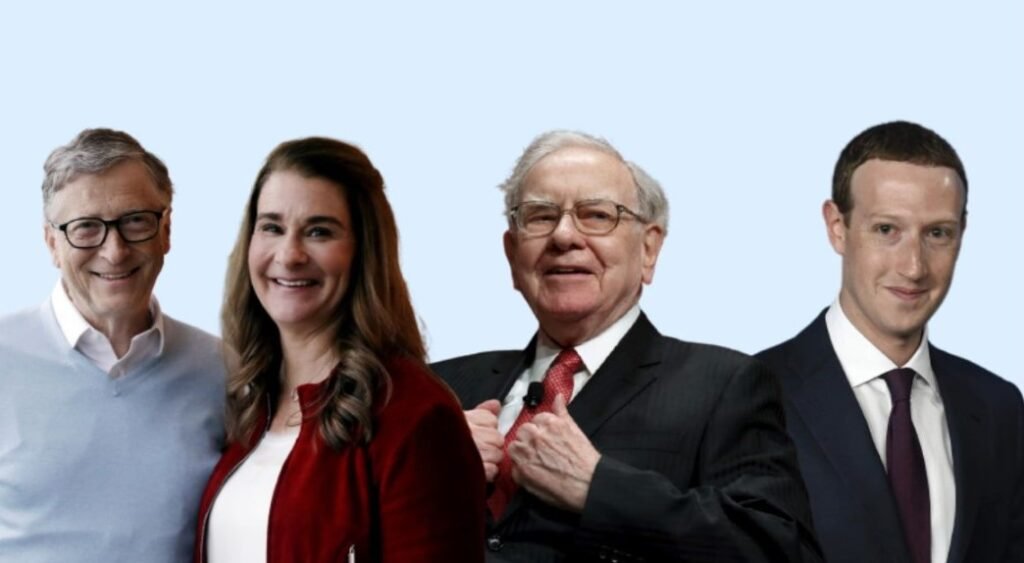The journey of philanthropy is one woven with passion, commitment, and a profound desire to improve the human condition. Renowned philanthropists have demonstrated that wealth can be a powerful tool for societal change, influencing countless lives through their charitable efforts. Their contributions go beyond monetary donations; they inspire movements, foster innovation, and challenge existing systems. Exploring the paths these individuals have taken can illuminate the ways in which each of us can make a difference in our communities and beyond.
Understanding Philanthropy
Philanthropy encompasses more than simply giving money to those in need; it represents a commitment to enhancing the welfare of humanity. Renowned philanthropists understand that effective philanthropy requires a strategic approach to problem-solving. This means identifying specific issues, understanding the root causes, and developing sustainable solutions that empower individuals and communities.
For instance, think of Andrew Carnegie, who believed that the wealthy had a moral obligation to distribute their surplus wealth for the greater good. His establishment of libraries, schools, and various educational institutions across the United States exemplifies how one individual’s vision can lead to monumental societal advancements. Today’s philanthropists carry forward such legacies, using their influence and resources to tackle pressing global challenges, from climate change to education inequality.
Take Inspiration from Notable Philanthropists
When considering how to make a difference, one can draw inspiration from various notable figures in philanthropy. Bill and Melinda Gates, through the Gates Foundation, revolutionized global health initiatives and education reform, significantly impacting millions. Their focus on data-driven strategies ensures that aid is not only generous but effective.
Similarly, Oprah Winfrey’s commitment to education and empowerment, especially for women and children, underscores the vital importance of uplifting vulnerable populations. The Oprah Winfrey Foundation and the Oprah Winfrey Operating Foundation fund initiatives that promote education and personal development, proving that the power of one can spark a larger movement within society.
The Role of Technology in Modern Philanthropy
The landscape of giving has dramatically transformed with the advent of technology, allowing philanthropists to reach wider audiences and operate more efficiently. Digital platforms enable raising awareness and funds at unprecedented speeds. Crowdfunding has emerged as a popular method for individuals and organizations to harness collective financial support, demonstrating that philanthropy is accessible to many, not just the ultra-wealthy.
Social media has also played a pivotal role in mobilizing awareness around various causes. Campaigns like the Ice Bucket Challenge and #GivingTuesday illustrate how quickly ideas can spread and inspire action. These initiatives have showcased the incredible potential for regular citizens to participate in philanthropy, thereby democratizing the act of giving.
How You Can Make a Difference
Making a difference doesn’t necessarily require vast financial resources or a global platform. Everyone has the opportunity to contribute to positive change in meaningful ways. Philanthropy begins at home, within our communities, and through small acts of kindness. Here are some practical steps to consider:
1. Identify Your Passion
Think about the causes that resonate most with you. Whether it’s education, health, environmental conservation, or social justice, defining your passion will guide your philanthropic efforts. Understanding what motivates you can transform your contributions from routine charitable actions into meaningful participation.
2. Volunteer Your Time
Giving your time is often just as valuable as providing financial support. Volunteer for local organizations that align with your values, whether that means tutoring students, assisting at shelters, or participating in community clean-up days. Through volunteering, you can create tangible change while inspiring others to join in your efforts.
3. Advocate for Change
Become an advocate for your chosen cause. Raise awareness within your social circles, engage on social media, or join grassroots campaigns. Your voice can amplify the efforts of organizations working toward social justice, environmental sustainability, or public health—creating a ripple effect that extends far beyond personal contributions.
4. Support Local Initiatives
Instead of solely focusing on large charities, consider supporting smaller, local initiatives that may lack the visibility of bigger organizations. These efforts often have a direct impact on the community and can benefit immensely from your support, both in terms of funding and volunteerism.
5. Foster a Philanthropic Mindset
Encouraging a culture of giving within your family or workplace can create long-lasting change. Share stories of impactful philanthropy, involve children in charity drives, or organize team volunteer days at work. A philanthropic mindset nurtures compassion and a sense of duty towards the community.
Conclusion
While the contributions of renowned philanthropists have laid substantial groundwork for social change, each individual also holds the power to effect meaningful transformations in society. By taking inspiration from these figures and embracing practical steps in our own lives, we can contribute to the legacy of impactful philanthropy. No matter the scale, every action counts, and collectively, these efforts can create significant waves of change in communities across the globe. So, find your passion, step forward, and make a difference that echoes through time, just like those who have come before you.
